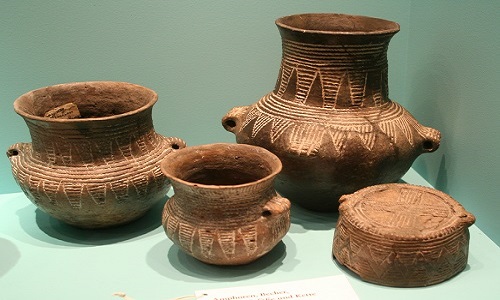8,231 total views, 1 views today
Culture is generally known as the total way of life, the ideas, customs and expected behavior of people in a society. Culture encompasses all aspect of an individual’s life such as the dressing, value, music, art, artifact, language, food, attitude, experience, knowledge, belief, norm, moral. religion that are shared by members of a society. The word “culture” was coined by an Anthropologist named E.B Taylor and he defined it as “a complex whole which include knowledge, belief, art, morals, customs and all other capabilities and habits acquired by man as a member of the society”. Culture is a universal phenomenon that is common in all society although it is specific to each society and varies from one society to another. In order to have a better understanding of what culture is, it is essential to know its characteristics.
There are some attributes or characteristics that define what culture is.
- Culture is learned
Culture is always learned. A child that is born into a society or a stranger, need to be taught and learn the way of life of that society. The process by which culture is being learned is called enculturation. The first avenue of learning culture is through the family. Language, morals, behaviours, respect, ways of eating etc. are first learned by an infant through the parents, peer group, friends and other members of the society. The clean slate nature of a child is being filled up by what he learns from the people around him. The genetic make-up of an individual does not influence his process of learning a culture. Thus, culture is not biologically transferred from parents but transmitted from one generation to another through the process of teaching the new members by the old members of the society.
- Culture is shared
Culture is shared by all members of a society. It is collectively and not individually owned and belong to a society An expected behavior, what to do and what not to do is being belong to a society, and generally accepted by members and transmitted among members of a particular society. This is the reason why people of the same community or society have the same way of life, view about life, speak the same language, think the same way and have the same or similar belief system. The shared attribute of culture promotes unity, togetherness and sense of belonging among members of a society.
- Culture is Dynamic
Culture undergo changes and not static. There are modifications and some factors that change culture. Some beliefs, acts, morals and ways of life change as the society changes. The influx of new people into a society brings new ideas and their own culture which can lead to a change. Migration, civilization, modernization, globalization and colonialism have brought change to our culture in Nigeria. When people with different origin come together, their culture will definitely mix together, which can lead to the change or total eradication of a culture or the development of a new culture.
- Culture is Integrated
Culture is like a tree with different branches and a system with different components. An individual must be integrated into the culture wholly by taking into considerations all essential parts or components of culture.
- Culture Does Not Act In Isolation
A culture, no matter how rigid it may look will be influenced by other culture of the nearby society or community. Although culture is known to be specific to the members of a society, it also gives room to accommodate other culture. An example is the way of dressing in Nigeria. Traditional wears with the use of tie and dye or “adire” are being coupled with the cooperate and formal wears from the white people’ culture.
